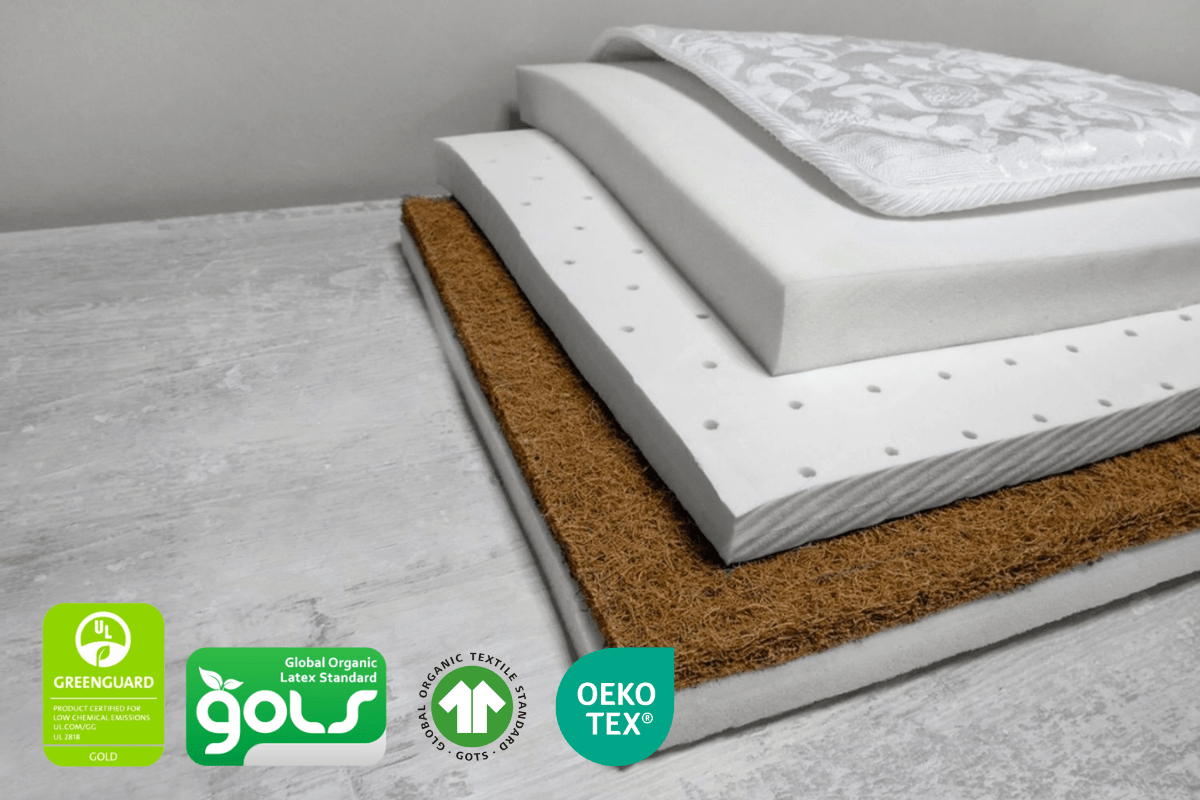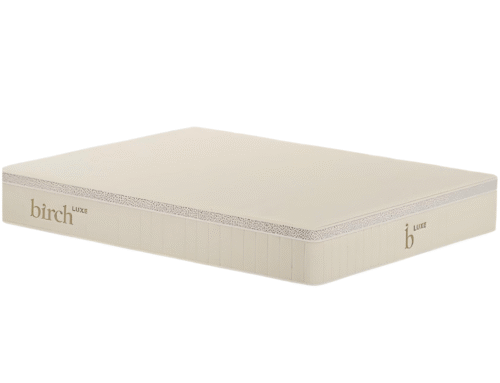Many people look at organic mattresses when they want a cleaner and safer way to sleep. Organic mattresses use natural materials that don’t contain harsh chemicals, showing what is an organic mattress and why buy an organic mattress, along with where to buy organic mattress. The price is usually higher than regular mattresses, which can make people wonder if it’s really worth it. The cost depends on the materials and how the mattress is made. Latex, organic cotton, and wool are harder to source and cost more to produce. That’s why the price can be higher, but it also reflects the care and quality behind it.
Knowing the usual price range helps people plan better. Some organic mattresses cost less but still give good support and comfort. Understanding what affects the price makes it easier to choose the right one without overspending. You can also explore the features of an organic mattress, best organic mattress, the benefits of buying an organic mattress, and where to buy it to better understand the options and make a choice that fits your needs.
Key Takeaways
- Investing in an organic mattress means choosing materials that are safe to you and the environment.
- A Queen-size organic mattress usually costs between $1,200 and $2,500. The final price depends on the materials used and the certifications they carry.
- The higher cost comes from certified latex and wool, plus extra work during production to meet standards like GOTS or GOLS.
- While the price may feel high at first, organic mattresses typically last 10 to 20 years. They can help reduce allergens, limit chemical exposure, and improve air quality at home.
- If your budget is tight, there are ways to get similar benefits without buying a full mattress. You can look for hybrid options, wait for sales, or try an organic mattress topper first.

What Makes A Mattress “Organic”?
What makes it organic? An organic mattress is made from materials that are grown and processed with strict care. This includes things like cotton, wool, and latex from natural sources. Each part is checked to make sure it meets safety rules before it’s used. There are certifications that prove a mattress is truly organic. GOTS and GOLS are two of the most trusted. They look at both the materials and how they’re handled to make sure everything meets health and environmental standards.
Regular mattresses can have chemicals that some people want to avoid. Organic ones don’t use harsh glues, flame retardants, or synthetic foams, showing the importance of an organic mattress. It also shows that organic mattresses make a difference and last longer, making it a better choice for people with allergies, young kids, or anyone who wants cleaner air in their home.
How Much Does An Organic Mattress Cost?
The cost of an organic mattress depends on the size and materials used. Some are made with basic layers, while others include added features that raise the price. Here’s a general price range to give you a clear idea:
- Twin: $800 – $1,500
- Full: $1,000 – $1,800
- Queen: $1,200 – $2,500
- King: $1,400 – $3,000+
These mattresses are usually made with natural latex, organic wool, and organic cotton. Hybrid models that combine latex with innerspring coils are usually on the higher end. If the design is simpler, the cost tends to be lower.
An organic mattress can be a good option if you want a cleaner and more natural sleeping surface. It’s priced higher than standard foam beds, but the materials used are built to last. The total cost also depends on the brand and where you buy it.
Why Are Organic Mattresses More Expensive?
Organic mattresses cost more because the materials used to make them are pricier and harder to produce. Organic cotton and latex are grown without harmful chemicals, which takes more time and care. Getting certified through programs like GOTS or GOLS also adds to the cost.
Manufacturers spend more to keep the process clean and safe. They avoid harsh chemicals, which means fewer shortcuts and lower environmental impact. This kind of production costs more than mass-producing regular foam beds. These mattresses are built to last. Natural latex can stay in good shape for up to 20 years with proper care. People pay more upfront, but they get a healthier product and a bed that lasts longer than most standard options.

Are Organic Mattresses Worth It?
Organic mattresses can be a good choice for people who want cleaner and safer sleep. They’re made without harsh chemicals, so the air around the bed feels fresher. Many families choose them because they want a healthier space at home. These mattresses use natural materials that allow air to flow better. That can help keep the bed cool and more comfortable through the night. Latex models also stay in shape longer, which means they don’t wear out as fast as regular beds.
For those with allergies, asthma, or sensitive skin, the benefits stand out even more. The materials are gentle and less likely to trigger reactions. And because they’re made responsibly, they’re also kinder to the environment.
What Factors Affect Organic Mattress Cost?
Several things can raise or lower the price of an organic mattress. Materials affect mattresses’ price. Natural latex usually costs more than cotton or wool, so the type of fabric and foam used matters a lot. The way the mattress is built also affects the price. Handmade or layered designs need more time and care, so they are more expensive. Certifications like GOTS or GOLS can add to the cost because they require strict standards.
Other details can add up too. Well-known brands usually charge more for their name and service. Bigger sizes are naturally pricier, and special shipping or longer warranties can increase the total amount. The features and quality also influence whether organic mattresses off gas, and in the end, it comes down to what features matter most to the buyer.

Organic vs Non-Organic Mattress: What’s The Difference?
Organic and non-organic mattresses may look the same at first, but their makeup is very different. Organic ones use natural materials like latex, cotton, and wool. Non-organic types are built with polyfoam and synthetic blends that may contain chemicals. Organic mattresses are made without harmful VOCs, which makes them safer for those who want a cleaner sleeping space. Many also come with trusted certifications like GOTS or GOLS. Non-organic mattresses, on the other hand, usually don’t carry these labels and may release chemical smells over time.
While organic options cost more upfront, they can last longer, sometimes up to 20 years. Non-organic mattresses are cheaper at first but usually need to be replaced sooner. In the long run, choosing organic can be a better investment for those who want durability and fewer chemicals.
Best Affordable Organic Mattress Options
Going for an organic mattress doesn’t have to mean spending a lot. There are simple ways to keep the cost down without giving up quality. One option is choosing a hybrid with latex and coils instead of an all-latex build, which usually costs less. Another smart move is starting with a firm base and adding a latex topper later. This way, the comfort level can be adjusted over time without buying a whole new bed. It’s a practical way to get that organic feel without paying the full price upfront.
Buying during major holiday sales can help save even more. Memorial Day and Black Friday usually bring the biggest discounts. And when buying online from direct-to-consumer brands, the price tends to be lower since there’s no retail markup. Choosing cotton or wool instead of latex can also be a more budget-friendly route.
Eco-Friendly Mattress Alternatives
Not everyone can afford a fully certified organic mattress, and that’s okay. There are safer options that don’t cost as much. These alternatives can still help reduce exposure to harsh chemicals at home.
Some mattresses are made with natural materials, even if they don’t have full organic certification. There are also foam mattresses that meet low VOC standards and carry CertiPUR-US certification. For people who already have a bed, an organic topper can be a simple upgrade. These choices give people more control over their sleeping space without spending too much. It’s a practical way to create a cleaner sleep setup. And for many households, that small change can bring better comfort and peace of mind.

How Much Should You Spend On A Mattress?
Knowing how much to spend on a mattress depends on comfort, budget, and quality. A clear budget range helps set realistic expectations. For organic mattresses, the usual price falls between $800 and $4,000, depending on the level of quality. Entry-level mattresses usually cost around $800 to $1,200. Mid-range options are between $1,200 and $2,000. Luxury mattresses can go from $2,000 up to $4,000 or more, depending on the brand and materials used.
Spending more doesn’t always mean getting the best sleep. What matters is choosing a mattress made with certified materials from a trusted brand. Reading real customer reviews can help find a durable and comfortable option without overspending.
Final Thoughts
An organic mattress is worth thinking about for people who care about health and the environment. Using natural materials reduces contact with chemicals and allergens. That can help breathing at night and make the bedroom feel fresher. It’s a small change that can improve the overall sleep environment.
Yes, it costs more at the start, but it can last longer and give a cleaner, safer sleep space. The upfront price can feel high, but it can save trouble later. There are options for different budgets if someone looks carefully. Finding the right mattress doesn’t have to be expensive. Many end up with one that balances comfort, health, and cost.







